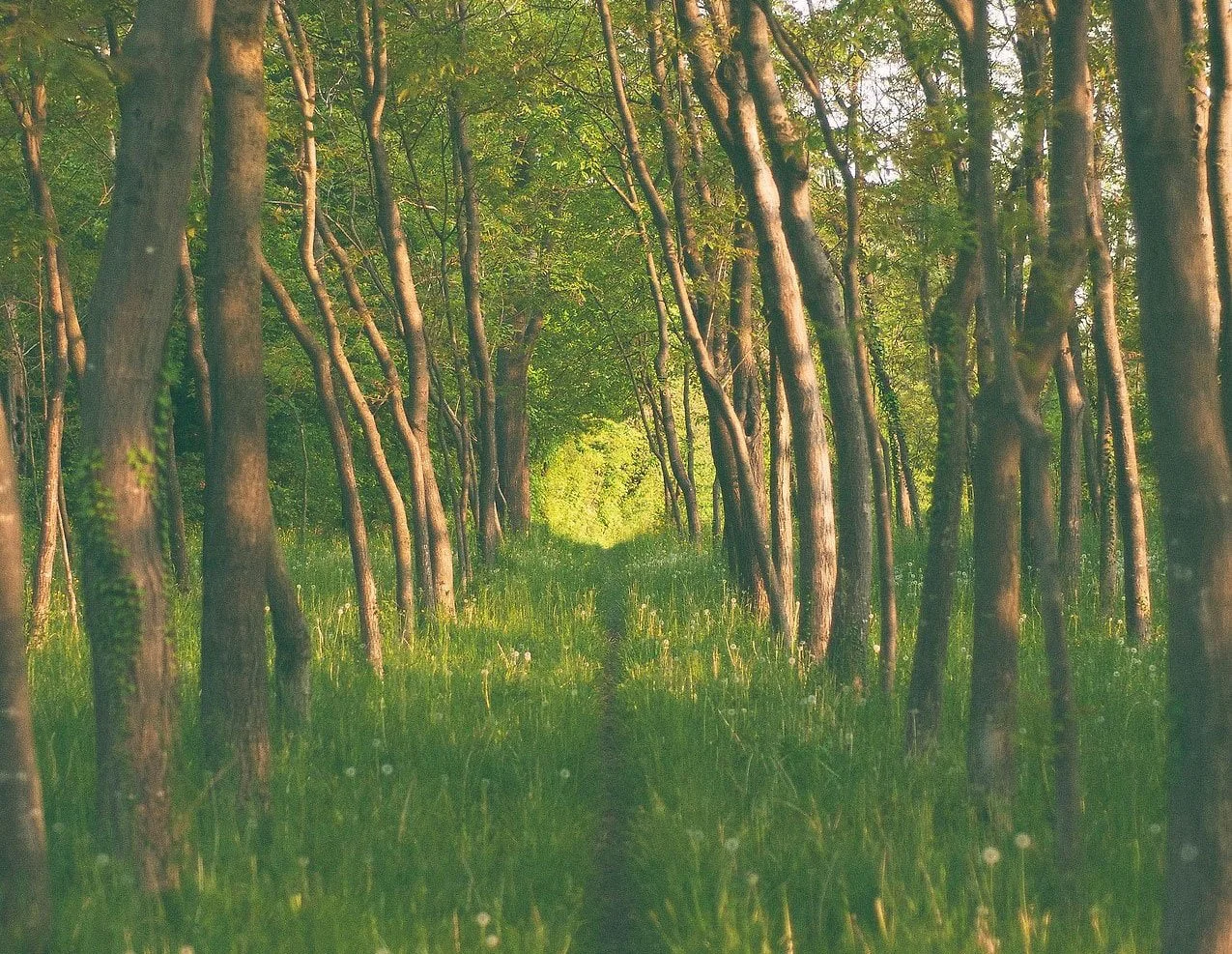Báyò and V dance and reveal portals of possibility that edge us towards deep change. Discussing the Congo as both place and portal, Báyò and V focus on V’s work with City of Joy, a transformational leadership community for women survivors of violence.
Read MoreArticulating both the harsh realities of modern day division and the simultaneous reality of our connection to each other and to the earth, Báyò and john examine what it means to be “other” and to invite in the “monstrous” and the “strange.”
Read MoreTyson calls us to unbrand our minds and deeply interrogate where we are sourcing our thoughts from, the ramifications of becoming a trauma-obsessed society, and how to identify environments for emergence.
Read MoreAyana and Morgan dive into the need for repair, healing, and acknowledgement as we face the historical roots of modern inequity. This heartfelt and expansive conversation calls for us to unlearn the ways racial capitalism has taught us wealth should be passed down.
Read MoreMalcolm offers well-rooted thought touching on the history of Stanford University, the internet, Palo Alto’s military connections, and reveals the values of understanding our material realities and the structures that support society as it stands.
Read Moreadrienne and Autumn discuss the joys of witnessing love in the face of despair, the accountability that comes with true love, and the growth and nourishment made possible through love, they impart deep wisdom about how to cherish this world for all it has given us.
Read MoreSamuel Bautista Lazo brings listeners into an insightful conversation on the value of craftwork that connects us to the past and plants seeds for the future emphasizing the radical act of creating connection and meaning with the objects we need to sustain life.
Read MoreJosué invites us to challenge extractive and colonial lenses by embracing the overwhelming force of the creative urge. How might we break apart from the constant pressure of social media to envision the new modes of creation and creativity that these stories need in order to be told?
Read MoreJarod (@cryptonaturalist) reminds us, limits are nourishing within poetry, and can be a virtue in life. If we accept the messy, twisted, and gnarled realities of life, we can escape the cold and dead store bought narratives about who we are supposed to be and instead lean into real freedom.
Read MoreTricia Hersey joins Ayana to unwind the complicated ties of exhaustion and exploitation. Tricia’s words serve as incantations against the brainwashing of grind culture as she and Ayana investigate the systems that benefit from keeping us stagnant.
Read MorePart two of the conversation between brontë and Tiffany spans further inquiry into shoals, the physical desire to belong to Earth, agency, eros, spiritual correction, the pleasure and potential of failure, and that which cannot be translated, but instead has to be experienced or co-witnessed to be understood.
Read Morebrontë and Tiffany explore sacred laughter, Black and Indigenous feminism, sexuality, liberation, ceremony, and protocol. This simultaneously intimate and expansive dialogue allows us to rethink the stories and structures we’ve been told regarding Black and Indigenous relations.
Read MoreSophie invites us to embrace rot and decay, to welcome our demons to the dinner table, and to prepare for uncertain futures with tenderness. Sophie provides a route to overcome the death-trap that is self-righteousness, instead prioritizing humble complexity and surrender to relationality.
Read MoreIsmail guides listeners through an overview of where we are in our relationship with drugs in the American context, and how this relationship is indicative of our relationship with the Earth and with humanity broadly encouraging us to move beyond the black and white view that some drugs are medicine while others are criminal.
Read MoreMimi’s work is grounded in the question: “How do we find new ways to talk about what hurts?” Flipping diagnosis on its head, Mimi guides us to find new ways to name what we feel and to decolonize the language of feeling itself.
Read MoreDr. Carroll pushes back against dominant settler histories about Cherokee migrations and relations to homeland and provides insight into what audience members ought to glean from Indigenous philosophies imparting practices of deep reciprocity, responsibility, and relationship to the land and each other.
Read MoreDr. Osorio guides us into a fuller understanding of aloha by returning the commodified phrase to the more extensive understanding of aloha ‘āina, wherein the possibilities for other worlds are not only born but remembered and recalled from the long history of sovereign Hawai’i and traditional Hawaiian teachings and lifeways.
Read MoreCovering the neuroscience of trauma, the habit of racism, and various typologies of systemic trauma, Dr. Ward provides insight into how we might consciously choose to activate our neuroplasticity toward justice rather than collectively rewarding our neuroplasticity for violence and oppression.
Read MoreALOK shares how challenging the gender binary is not only in service to our collective wellbeing but is a reverential offering in acknowledging our true celestial expansiveness that has been dimmed under binarism, heteronormativity, and colonialism.
Read MoreBayo invites us to pause and abandon solutionism, step back from the project of progress, and dance into a different set of questions: What does the Anthropocene teach us as a destabilizing agent that resists our taming? What happens when we unfurl into a space of slowness and relinquish human mastery to a wider cosmic net of relations?
Read More


![TYSON YUNKAPORTA on Unbranding Our Mind [ENCORE] /328](https://images.squarespace-cdn.com/content/v1/5403e5dbe4b04db10d1d362b/1679438620815-FQQCOGTM00WXBA9K5R4W/Tyson-Yunkaporta_For-The-WIld-Podcast_Episode1x1.jpg)







![TIFFANY LETHABO KING on The Black Shoals [with brontë velez], Part Two /316](https://images.squarespace-cdn.com/content/v1/5403e5dbe4b04db10d1d362b/1670886696027-B18TPEPB1F02GVOCNCRM/Tiffany-Lethabo-King_For-The-Wild_Episode2.jpg)
![TIFFANY LETHABO KING on The Black Shoals [with brontë velez], Part One /315](https://images.squarespace-cdn.com/content/v1/5403e5dbe4b04db10d1d362b/1670276370810-8C4398YL28P1N7EDZ8OG/Tiffany-Lethabo-King_For-The-Wild_Episode1.jpg)






![ALOK on Unruly Beauty [ENCORE] /286](https://images.squarespace-cdn.com/content/v1/5403e5dbe4b04db10d1d362b/1628026864236-HIRDTGMH0WCPPV7JM2H1/ALOK_For-The-Wild_Episode3b.jpg)
![Dr. BAYO AKOMOLAFE on Slowing Down in Urgent Times [ENCORE] /285](https://images.squarespace-cdn.com/content/v1/5403e5dbe4b04db10d1d362b/1651616312541-1USTQVEB6WAGL3I1V6SM/Dr-Bayo-Akomolafe_For-The-Wild_Episode_Encore.jpg)